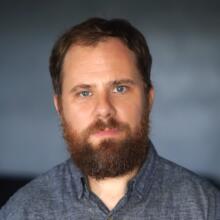As the author of Psalm 137 rested on the banks of the Euphrates, his eyes were so filled with tears and heart so laden with grief that song would not come from his lips. His beloved home, Jerusalem, the heavenly city, sat in smoldering ruins. The conquest that exiled him, the Babylonian invasion of 586 B.C., was nothing short of total defeat for the Jews. Led by Nebuchadnezzar, the Babylonian army laid waste to the city, plundering its temple and deporting a significant portion of its inhabitants to Babylon. But Nebuchadnezzar’s assault was hardly the first time violence had decimated Jerusalem, and it would by no means be the last. By one historian’s count, over the course of its extraordinary 40-century history, Jerusalem has been “destroyed twice, besieged 23 times, attacked 52 times, and captured and recaptured 44 times.”
“Jerusalem has a thousand faces and each one of us has our own Jerusalem,” Yitzhak Rabin once said. For Jews, it is the place where Abraham came to sacrifice Isaac and David found a permanent home for the Ark of the Covenant; for Christians, the city in which Jesus spent his final days before being led to his crucifixion; and for Muslims, a city outranked in importance only by Mecca and Medina, the birth and death places of the Prophet Muhammad, who chose Jerusalem as his point of embarkation for a mystical visit to heaven. And because the three great monotheistic faiths each hold the so-called “City of Peace” so dear, its history has been marked as often by hatred as by holiness.
The new PBS documentary, Jerusalem: Center of the World, directed by Andrew Goldberg and hosted by Raymond Suarez of The News Hour with Jim Lehrer, surveys these ambiguities of Jerusalem’s past, exploring how the interplay of virtue and vice, sacred story and profane reality have for millennia shaped Jerusalem’s identity. Given its checkered history, which of course extends to present-day tensions, it would be easy enough to throw one’s hands up and turn Jerusalem into a case study in the ill effects of religious fervor. Yet to their great credit the producers resist this path, following instead an approach championed by Huston Smith, the esteemed scholar of comparative religion, which treats religions as the authentic faith of persons.
Thus Goldberg and Suarez introduce us to Jerusalem’s history and landscape from the perspective of a pilgrim. Through beautifully shot visuals of the city’s hallowed terrain and, in particular, with footage of modern-day pilgrims engaged in ritual and worship in the Holy City—Roman Catholics waving palm fronds in reenactment of Jesus’ entry into Jerusalem, Orthodox Jews whispering prayers at the Western Wall—we begin to understand why this city, in spite of its bleak past, has been a place of great inspiration for generations.
As Suarez, playing the role of reporter, historian and occasional travelogue host, tours the city’s most significant sites and explains how intermingled are the histories and physical proximities of the holy places of the three great monotheistic faiths, we are struck with how remarkable it is that Jerusalem has not witnessed even more violence in its history.
The film begins atop Mount Moriah, the place where Abraham purportedly journeyed to sacrifice Isaac and where Solomon later constructed the first temple. Later, we return to the mountain to explore its significance for Islam—as the spot where Muhammad ascended to heaven and thus where the magnificent Dome of the Rock shrine was later erected. On this one piece of prized spiritual real estate, then, the great monotheistic traditions intermingled.
In another scene, the film introduces us to the Muslim doorkeeper of the Church of the Holy Sepulcher, whose family has held the key of the church continuously since the 12th century when the great sultan Saladin conquered the city. In this present age, in which Islam so often is stereotyped as a religion of violent extremists, let it be noted that a Muslim presided over one of Jerusalem’s most peaceful eras. Saladin respected the sacred character of the city’s Christian and Jewish monuments and permitted freedom of religious practice in the city. At the Church of the Holy Sepulcher, he installed an impartial Muslim doorkeeper and a power-sharing arrangement among the various Christian sects who laid claim to the shrine, which prevented them from quarrelling over the shrine’s ownership.
Thus, in spite of the discord that has haunted the heavenly city, and from the looks of things, will continue to do so, Goldman and Suarez’s film allows us to find much hope in the underlying, universal urge toward the divine which has lured so many to Jerusalem and inspired countless more from afar.
Stylistically, the documentary typifies the PBS genre, which is both a compliment and a mild criticism. The film is thoughtful and highly informative, avoiding an overwrought writing style and intrusive dramatic reenactments and visual effects, which have become so ubiquitous in cable documentaries. Occasionally, because the filmmakers rely too much on still artwork and “talking head” commentary, the pace is slow, but this shortcoming can be overlooked in light of the film’s compelling content.
"Jerusalem: Center of the World" premieres on PBS April 1st with repeat broadcasts throughout April. Check local listings.








